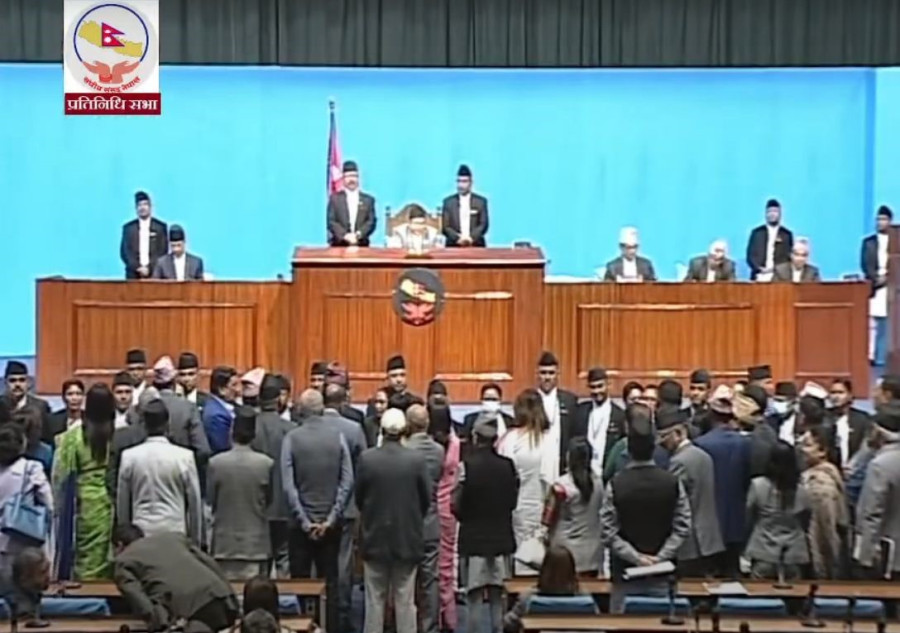Editorial
Let House function
The ruling and opposition parties shouldn’t waste time before trying to hammer out a compromise.
When this Parliament session commenced on February 6, political leaders, parliament secretariat and the government all committed to make the new session of the legislature more productive. The prime minister and the then law minister, among other top officials, pledged to give enough business to the House and train its focus on law-making and deliberations on pressing issues. Political leaders and lawmakers were widely criticised for the unproductive previous session. Besides engaging in routine endorsement of annual budget bills, only a single other bill (on usury) was passed during the session spanning 65 meetings over 180 days.
In response to widespread public criticism, Prime Minister Pushpa Kamal Dahal repeatedly vowed the executive as well as the legislative would learn from past mistakes and work rigorously to make the new session productive. A week before the commencement of the winter session, which is also regarded as a bill session, the prime minister called a meeting of the officials from the ministry of law, justice and federal affairs and directed them to finalise as many bills as possible and forward them to the House at the earliest. Also, the Parliament secretariat came up with a couple of ideas to make the legislature more effective, such as running the House meetings as per a strict calendar. The parliament started a practice of presenting the principles and priorities of the government's annual budget in the winter session with a view to discuss the budget's guidelines months before the government prepares it and presents it in the budget session at the end of May. These initiatives and commitments made at the outset of the session were widely lauded.
But there is now room for doubt again. The change in the governing coalition appears to have ripple effects on House proceedings. The main opposition Nepali Congress, which was the biggest ruling coalition partner until the start of this month, has made a strong demand for the resignation of newly appointed Home Minister Rabi Lamichhane. They have asked for Lamichhane's resignation over his alleged involvement in embezzling money from cooperatives. They argue that Lamichhane should be removed from the Cabinet as police can’t properly investigate the charges against him when he remains in the position. The Congress lawmakers have threatened to obstruct House proceedings if the prime minister fails to convince them by his answers and action.
Prolonged disruption of the House proceedings is an old and sordid aspect of Nepali politics. Nepal’s political parties have found parliament obstruction the easiest way to press their demands. Last year, the then main opposition CPN-UML obstructed parliament for weeks demanding formation of a high level commission to probe gold smuggling cases. The ruling and opposition parties reached an agreement on the commission only after UML lawmakers obstructed the House for nearly a month. Now the Congress seems to be resorting to the same tactics.
Repetition of the same scenes in the House floor would further disappoint the people and add to the unpopularity of political forces. The Parliament has some important bills to pass in this session. Now the prime minister should reach out to the opposition and talk to them without wasting a single day while the leaders of the opposition should also act responsibly. They shouldn’t repeat the mistake of wasting weeks and months before trying to hammer out a compromise.




 13.12°C Kathmandu
13.12°C Kathmandu














